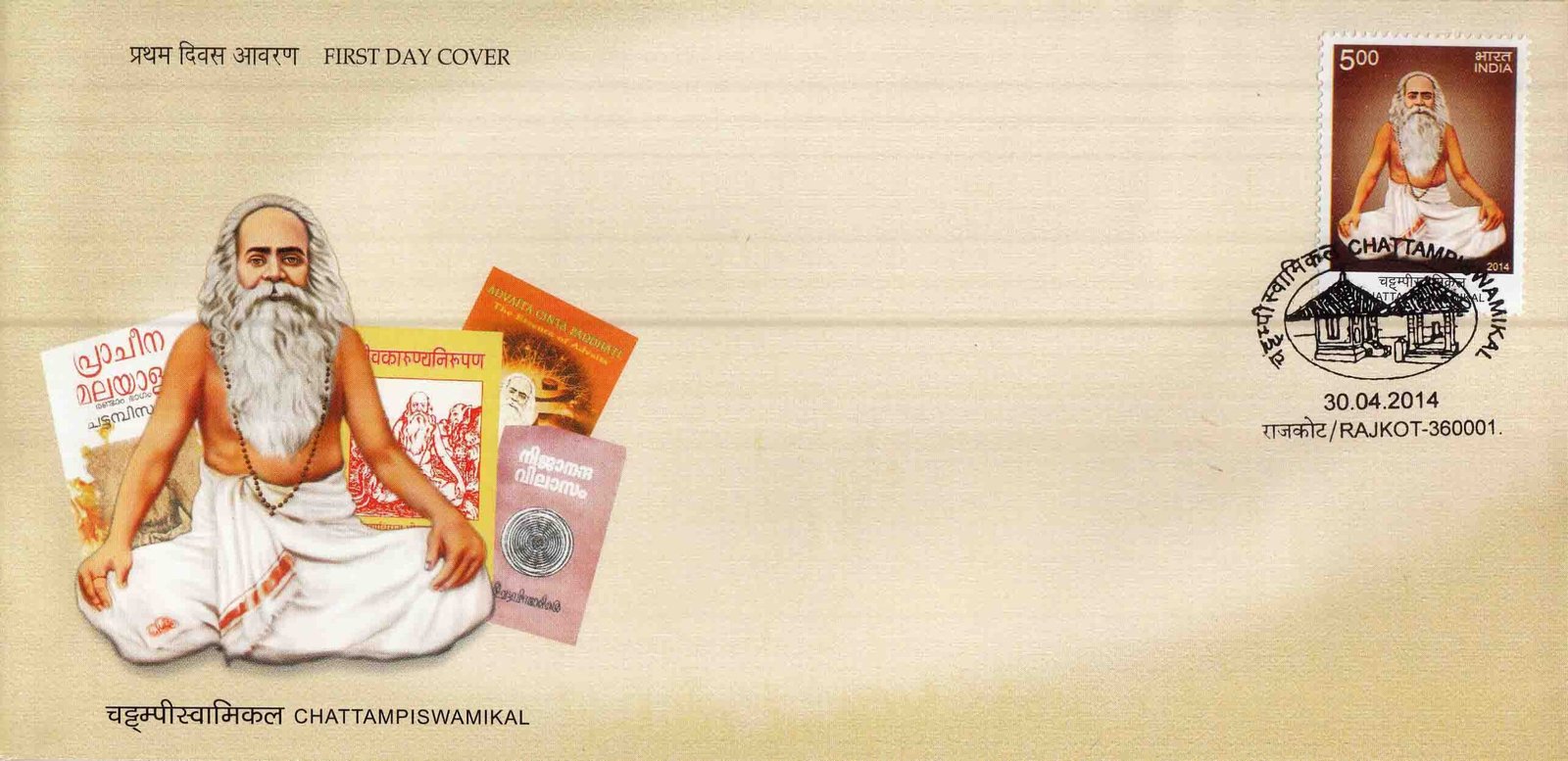ChattampiSwamikal

Technical Data
| Date of Issue | April 30, 2014 |
|---|---|
| Denomination | Rs. 5 |
| Quantity | 700,000 |
| Perforation | 13½ |
| Printer | Security Printing Press, Hyderabad |
| Printing Process | Wet Offset |
| Watermark | No Watermark |
| Colors | Multicolor |
| Credit (Designed By) | Sh. Sankha Samanta Smt. Alka Sharma |
| Catalog Codes |
Michel IN 2821 Stamp Number IN 2687 Yvert et Tellier IN 2576 Stanley Gibbons IN 3003 |
| Themes | Anniversaries and Jubilees | Authors | Famous people | Philosophers | Reformers |
Early Life
Chattampiswamikal was born on 25 August 1853 in Kannammoola, a village near Thiruvananthapuram. His parents named him Ayyappan, and he was fondly called Kunjan. Blessed with a sharp intellect and remarkable academic ability from childhood, he later came to be known as Chattampi, a name that stayed with him throughout his life. He was also revered as Shri Vidyadhiraja Swami Thiruvadikal and Parama Bhattarasri Chattampi Swami Thiruvadikal.
Scholarly Pursuits and Mastery of Knowledge
In his early years, Chattampiswamikal worked in several occupations, including manual labour, document writing, accounting and clerical work. His thirst for knowledge took him across regions as he engaged in deep research into the Vedas and the history of Kerala.
He mastered a vast range of disciplines—Astrology, Yoga, Medicine, Philosophy, Philology, Music, and more—along with the Vedas, Upanishads and historical studies. He possessed exceptional command over Sanskrit, Malayalam, and Tamil.
Believing that sacred knowledge should be accessible to all, he authored ‘Vedadhikara Niroopanam’, a monumental work on Vedic interpretation. Altogether, he wrote 15 significant books.
Philosophy and Social Reform
Chattampiswamikal lived a life of simplicity, discipline and spirituality. He did not subscribe to any one religion; instead, he envisioned a society free from the confines of religious division. His teachings reveal a progressive and modern worldview that challenged rigid social structures.
He strongly believed that education is the greatest social equalizer, and this conviction played a crucial role in inspiring social upliftment among the oppressed sections of society.
He preached ahimsa and vegetarianism, a philosophy beautifully articulated in his work ‘Jeevakarunya Niroopanam’. He championed human equality and advocated for the creation of a casteless society, reflecting what he believed to be the essence of India’s cultural heritage.
Remarkably ahead of his time, he also promoted women’s emancipation and expressed strong feminist ideals.
Later Life and Maha Samadhi
Chattampiswamikal attained Maha Samadhi on 5 May 1924 at Panmana Ashram, located about 18 km north of Quilon (now Kollam). His legacy continues to guide spiritual seekers, scholars and social reformers.
Commemorative Postage Stamp
A commemorative postage stamp was issued in honour of Chattampiswamikal, celebrating his profound contributions to spirituality, scholarship and social transformation.
First Day Cover


Leave a Comment
You must be logged in to post a comment.